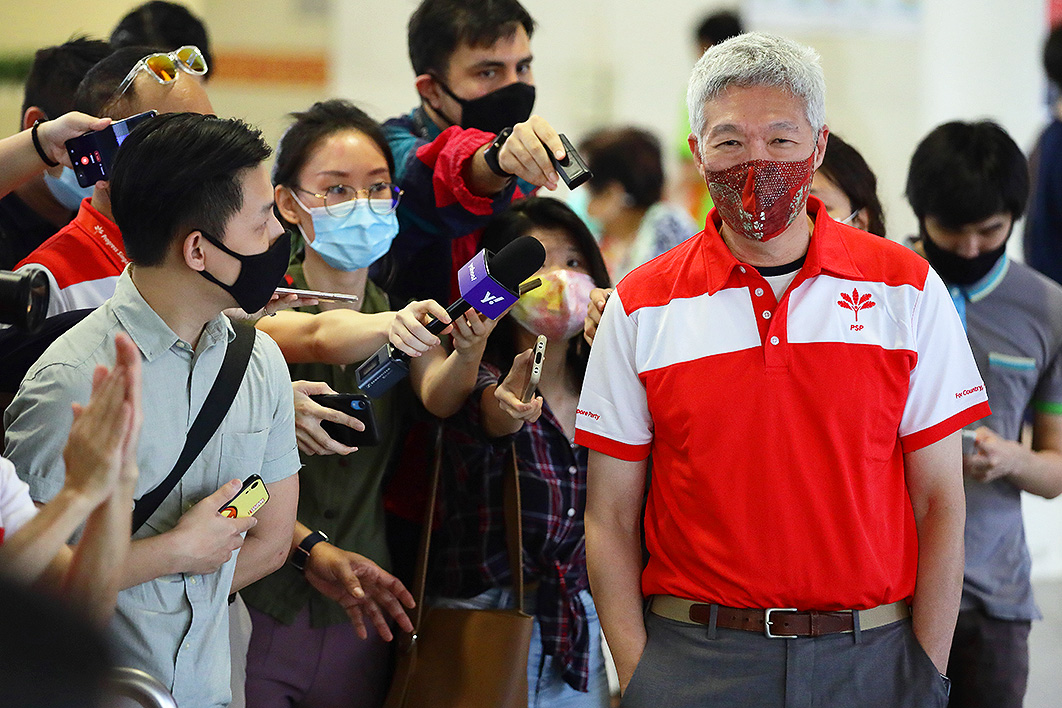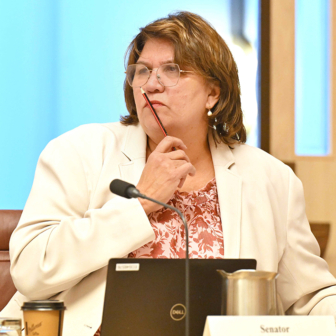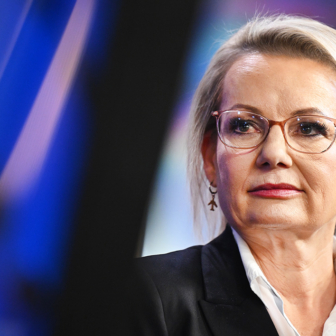It’s safe to assume that the People’s Action Party, or PAP, will be re-elected for the fourteenth time in a row when Singaporeans vote on 10 July, but this doesn’t mean the election is unimportant or without interest. Although the government won’t change, the planned prime ministerial succession could be pushed off course, and the composition of the parliamentary opposition is up for grabs.
Once an election is called in Singapore, the next big event is Nomination Day, in this case on 30 June. There was a time when the PAP used to win the election at that point in the cycle, simply because the opposition offered candidates in fewer than half the seats. But this time we can expect opposition parties to contest all of the ninety-three seats, and with sufficient cooperation to minimise three-cornered contests.
This year, the big Nomination Day questions revolve around a son and a grandson of the city-state’s first prime minister, Lee Kuan Yew.
The son is Lee Hsien Yang, estranged brother of prime minister Lee Hsien Loong, and the question is whether he will nominate as an opposition candidate in his father’s old seat of Tanjong Pagar. He announced on 24 June that he had joined the new Progress Singapore Party, helmed by the affable and immensely popular Tan Cheng Bock. Dr Tan is a general practitioner who spent decades as a government MP but thinks the PAP has betrayed Lee Kuan Yew’s legacy. If Lee Hsien Yang stands, he will ensure that the PSP is the most talked-about opposition party in the contest.
The grandson is Li Hongyi, son of prime minister Lee Hsien Loong, and the question is whether he will nominate as a PAP candidate. Li’s entry into politics would be just as riveting as Lee Hsien Yang’s, but he may decide it is prudent to wait. Even if he sits out the election, he might still be parachuted into parliament under the peculiarly Singaporean practice of each new parliament selecting a few unelected people to join them as Nominated MPs.
Beyond the intrigues of the Lee family, we also need to look out for retirements among members of cabinet. None has been announced so far, but one or two seem likely at very senior levels.
Beyond Nomination Day, all eyes will be on deputy prime minister Heng Swee Keat. His performance as Lee Hsien Loong’s understudy has been disappointing, even embarrassing, and poor campaigning on his part could see him bypassed for the top job — or at least force Lee to stay beyond his planned retirement in the next year or so.
The actual conduct of the election campaigns will also be of interest. The government has chosen to go to the polls early — it could have waited until April next year — despite Singapore’s Covid-19 infection rate being stuck at nearly 200 people a day (in a population of 5.6 million). Lockdown rules will provide no more than a modicum of safety for the population, but they put the opposition at an even greater disadvantage than usual. They mean no rallies (which are the opposition’s rice bowl), severe restrictions on “walkabouts” by candidates, and the only compensatory measures being candidate statements on the English-language television channel, but no others. The lack of opportunities for outreach via Malay, Tamil or Chinese broadcasters, which have a huge combined viewership, won’t concern the incumbents but will muffle the opposition badly.
Much of the campaigning will be done online, but the internet is subject to new restrictions. For the first time, the government will have the power to censor alleged “fake news” on the internet, and we don’t know if this option will be used with a light touch or a sledgehammer.
In ordinary times each cabinet minister has the power to issue directives against websites he or she deems to have propagated a falsehood. It is a power that a minister exercises unilaterally and with no practical oversight, and it has been mostly used against critics of the government. During the election campaign, this power will be delegated to a permanent secretary of each ministry, but this doesn’t remove the conflict of interest. No one gets to be a permanent secretary unless they are thoroughly loyal to the PAP; indeed, a successful career in the civil service is a standard stepping stone into politics and cabinet.
Beyond the government’s ham-fisted management of the second wave of Covid-19, it is hard to know which campaign issues will be most important. A bedrock of dissatisfaction exists about immigration, housing, the reliability and cost of public transport, healthcare, hospitals, data security, access to retirement savings and even freedom of speech, but they all seem to have been swamped by the pandemic.
The government will be keen to increase its share of the vote and win back some of the six seats currently held by the sole opposition party represented in parliament, the Workers’ Party, but neither seems likely.
The Workers’ Party will obviously be keen to hold on to its six elected MPs and maintain its status as the major opposition party, perhaps even hoping that a new star candidate, Nicole Seah, might help it make some gains. All of its MPs seem likely to retain their existing seats, but you can never tell, especially since five of the six are in a single winner-takes-all multi-member constituency, and for years the government has been relentlessly trashing their reputations.
But the real wild card is Lee Hsien Yang and Tan Cheng Bock’s PSP. If there is major upset on 10 July, it will most likely come from the PAP’s former allies. •




